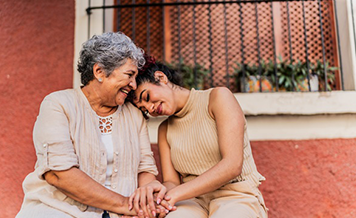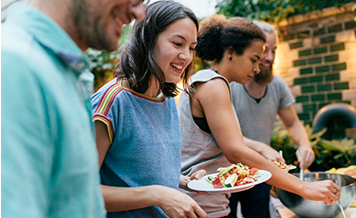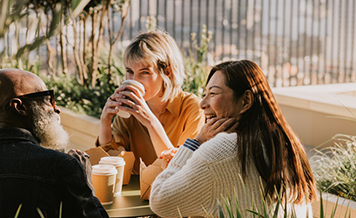The power of opening up
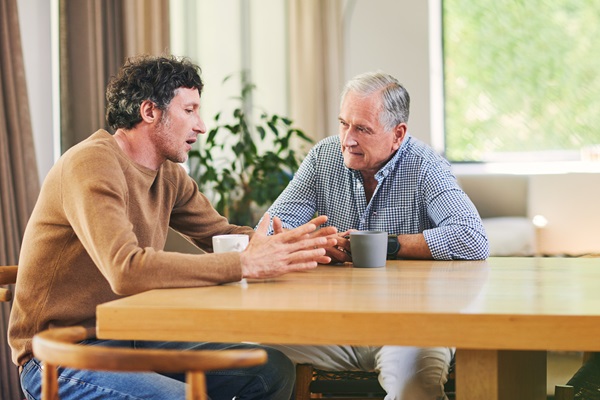
Do you ever feel like you’re a little disconnected from the people around you? Even the ones closest to you, like your family and friends?
It can be a lonely feeling to seem like you’re not totally understood – but there are ways we can increase emotional bonds with others. Practising vulnerability by talking more honestly about how you’re feeling might help.
Dr Ali Walker PhD, a specialist in human connection with a PhD in group dynamics, says this might feel daunting at first, if you’re not used to it.
“A lot of people have been taught that being emotionally vulnerable is a sign of weakness, and they've never had it modelled for them,” she says.
If we weren’t brought up to consider emotional vulnerability as a good thing, it might not come naturally.
Recently, though, Ali says, more people have embraced the idea of vulnerability as a positive tool we can use to build connection.
“Dr Brené Brown, who's a social work researcher from the University of Houston, totally reframed our understanding of emotional vulnerability,” she says.
Ali says Dr Brown describes vulnerability as involving a level of “uncertainty, risk and emotional exposure”, which can feel a little scary.
In other words, Ali says, it involves “sharing openly, expressing and revealing ourselves to others”.
What is vulnerability?
Ali says different things will make different people feel vulnerable.
“For some people, vulnerability might look like asking for help, whereas for other people, vulnerability might look like talking about how they feel to another person,” she says.
“It could be explaining how something has hurt you or how you might have had a sensitivity or a fragility about something. It could be initiating affection or sex. It could be asking someone to put down their phone while you're talking to them.”
How can vulnerability help us?
Ali says a host of research shows how practising vulnerability can be psychologically good for us.
“In 2007, UCLA psychologists found that putting feelings into words – verbally expressing our emotions, which we call ‘affect labelling’ – can lessen the intensity of sadness, anger and pain1,” she says.
“So, simply by voicing and naming the emotion that you are feeling, it can lessen the intensity of that emotion.”
She adds that research in the Journal of Pain Management in 2020 showed that emotional awareness can even reduce chronic pain. A group of veterans were encouraged to express their emotions throughout their treatment, and this was found to significantly lower their pain severity2.
What's one thing you wish you'd spoken to your family about sooner?
Dr Chris Robinson, Medibank's Chief Medical Officer shares what he wishes he'd opened up to his family about sooner.
Click the video to watch
How to practise being more vulnerable
If you find it difficult to open up, here are some tips for letting your walls down.
1. Consider where you are hard on yourself
Ali suggests making “a list of where you are harsh towards yourself”, which will reveal what makes you feel vulnerable.
In other words, “Where do you have unrelenting standards of yourself?”
“It could be how you're eating – you might be really critical about what you've been consuming. It could be exercise. It could be relationship based.
This can provide some useful self-awareness, Ali says.
“Harshness or overreaction towards ourselves or others is a signal, that we are protecting something vulnerable.”
2. Tell a story that shows how you felt
Sometimes we don’t want to admit when we’re experiencing negative feelings – but it can be helpful to talk about them.
“A lot of people, when it comes to connection, are used to wanting everything to be positive, making a joke or having fun, and they don't share experiences or stories that have any kind of negative element to them,” says Ali.
To practise putting how you feel into words, “tell a story to someone that you trust that includes how you felt in the story”.
3. Be prepared for people to react in their own way
Ali says try not to feel bad if you start to express more vulnerability and people don’t react in the way you may want them to.
“Say you're with loved ones or with a friend that you've known forever, and you cry for the first time in front of them – they might be really uncomfortable with that. They might feel unsure of how to react.”
Just be proud of yourself for showing how you’re truly feeling and give the person time to respond in their own way. They might feel surprised and need some time to process their own emotions.
4. Allow people to be vulnerable with you too
Ultimately, opening up encourages others to be more vulnerable and authentic with you, says Ali.
“It creates intimacy and empathy, because it's a signal you're taking your armour off, which then gives the other person safety to take their armour off – it builds trust,” she says.
“People who are honest and upfront about who they are become easier to relate to than someone who's a closed book.”
The more you practise emotional vulnerability, the more you might find others do the same with you – and you should welcome this.
“It's the mirroring effect,” says Ali. “Emotions are contagious, so we tend to reflect what others do when we're in a relationship with them. We form patterns of connection.”
How to seek mental health support
If you are experiencing mental health struggles, a good place to start the discussion about getting help is with your GP.
Medibank's 24/7 Medibank Mental Health Support is also available for all Medibank health insurance members. Talk with a mental health professional over the phone or online about any mental health or emotional concern and get guidance on what you can do next. Chat online or call 1800 644 325 any time of the day or night, 7 days a week at no extra cost.~
If you, or someone you know, need immediate support or medical assistance, contact 000 in an emergency or Lifeline on 13 11 14.
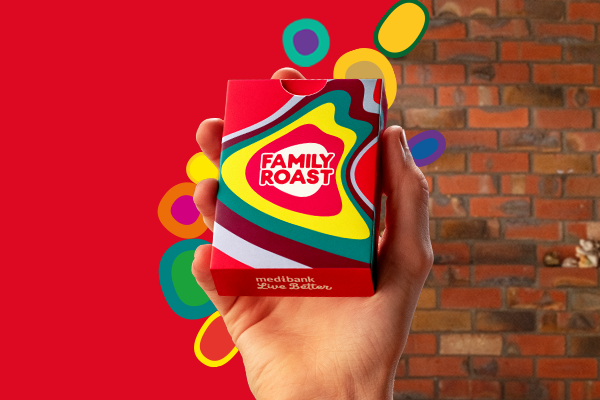
Get together and have a tasty conversation.
The Medibank Family Roast is a card game designed to get families connecting and talking. Because when the bonds of family are stronger, Australia is stronger. So get around the dinner table, it’s time to serve the questions you’ve always wanted to know the answer to.
1 Putting feelings into words: affect labelling disrupts amygdala activity in response to affective stimuli
https://pubmed.ncbi.nlm.nih.gov/17576282/
2 Emotional Awareness and Expression Therapy Achieves Greater Pain Reduction than Cognitive Behavioral Therapy in Older Adults with Chronic Musculoskeletal Pain: A Preliminary Randomized Comparison Trial
https://pubmed.ncbi.nlm.nih.gov/32451528/
How can we help?
I want to know how my cover supports mental health
I need help and want to talk
Related articles
Things you should know
~Some referred services may involve out of pocket costs and waiting periods may apply.
While we hope you find this information helpful, please note that it is general in nature. It is not health advice, and is not tailored to meet your individual health needs. You should always consult a trusted health professional before making decisions about your health care. While we have prepared the information carefully, we can’t guarantee that it is accurate, complete or up-to-date. And while we may mention goods or services provided by others, we aren’t specifically endorsing them and can’t accept responsibility for them. For these reasons we are unable to accept responsibility for any loss that may be sustained from acting on this information (subject to applicable consumer guarantees).
